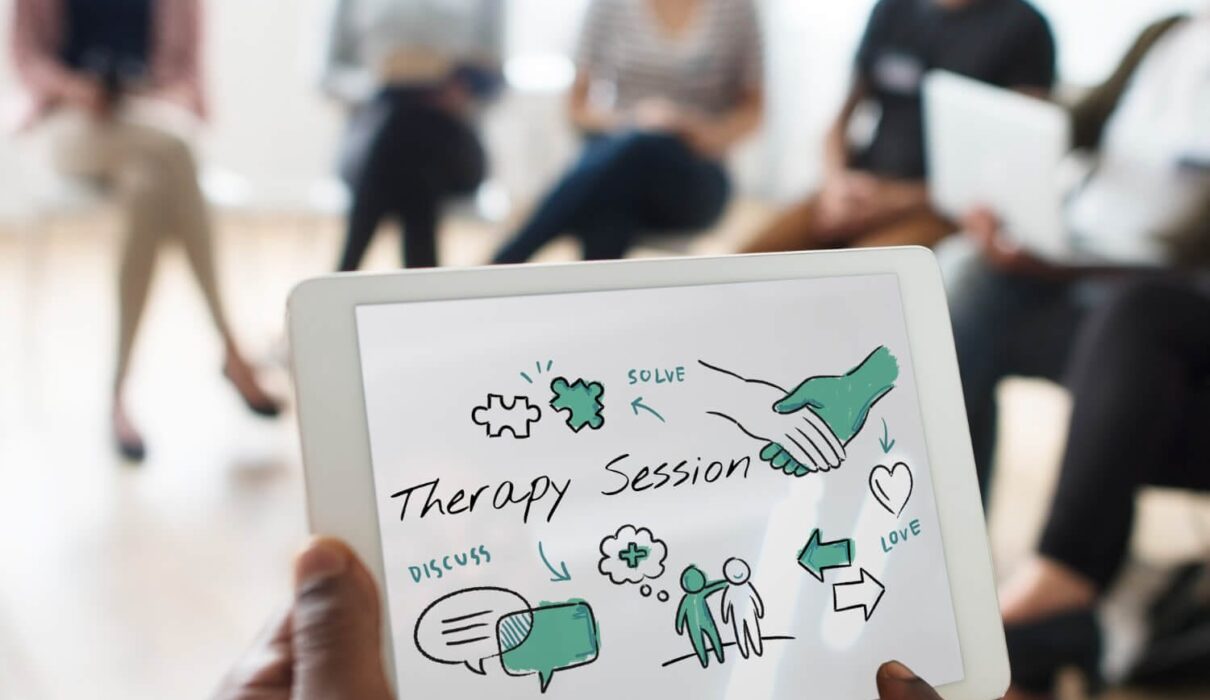Psychological treatment can be supplemented with techniques that enhance its effects and that you can also apply in your daily life without compromising your mental health. Discover them here.
Alternative psychological therapies are tools that assist professional treatment and are becoming increasingly popular. Because they can be incorporated into your daily life with relative ease, many people use them to improve the results of their treatments.
In this article you will find the most well-known ones, as well as recommendations for applying them. Don’t miss out on anything, because in this world, where psychological discomfort is an epidemic, it never hurts to learn some techniques to feel better.
What are alternative psychological therapies?
We talk about alternative therapies to refer to those that complement the main psychological therapies . They are characterized by their contribution to improving results and by the low risk in their application. That is, they are always associated with a first-rate approach and their use never worsens the patient’s condition.
These practices have been developed over the years, focusing on the relaxation that the body and mind require during the care of patients undergoing a mental health process .
Through complementary therapies, learning new habits improves and the benefits of the primary techniques are reinforced.
Types of alternative psychological therapies
Generally, the effect of each alternative method depends on the treatment objectives and the therapeutic context. Below you will find some of the most commonly used and their usefulness for the patient.
1. Music therapy
It is common to use music therapy to influence mood. From playing instruments to just listening to music, music has important benefits for mental health: it generates well-being, stimulates memory, helps develop social skills , promotes happiness , and much more.
It is often used in people with neurodivergence such as ASD, in dementia or patients with speech and motor dysfunctions.
2. Bach Flowers
This type of aromatherapy is based on applying drops of floral essential oils sublingually. There is a list of them with their corresponding effects on mood: reducing anxiety , ending the feeling of loneliness, and so on up to the 38 Bach flowers .
Although it is one of the most popular alternative therapies today, you should know that its effectiveness has not been scientifically proven. It is suggested that the positive results are due to the placebo effect and that many studies on these plants are biased; but they are often used for their 100% natural composition and imperceptible side effects.
3. Laughter therapy
This type of complementary therapy seeks to obtain the benefits of sincere and visceral laughter through various exercises. As it is a process that opposes stress and tension , its application helps to relax muscles, relieve unpleasant sensations or improve circulation.
It is a therapy frequently used in patients with serious illnesses or those who experience physical pain, such as cancer .
It improves the immune response , reduces stress , improves mood, increases self-esteem and improves tolerance to pain and fatigue .
4. Animal therapy
Contact with friendly and sociable animals has a number of advantages for people’s mental health. In this way, pet therapy not only improves mood, but also intervenes in the development of empathy and other abilities, such as social skills or communication.
In this regard, a publication in the International Journal of Caring Sciences highlights that the presence of animals relieves, relaxes and relieves tension . However, it is important to take into account the patient’s moral baggage, since many people refuse to use them when there are other options. Likewise, it is crucial to choose centers and professionals that guarantee animal welfare.
5. Biofeedback
This curious technique, somewhat confused with neurofeedback and not as well known as the rest of those mentioned, helps people to have control over their physical and physiological processes. It consists of the placement of measuring instruments (EEG, ECG, etc.) to analyze certain constants of the patient, such as brain waves or heart and respiratory rate.
In this way, you get direct feedback on your functions and rhythms and can see them change when you do, for example, relaxation exercises . Biofeedback is used for tension headaches , nervous hyperactivity, anxiety or chronic pain, among other areas.
6. Acupuncture
This technique, modernized from traditional Eastern medicine, demonstrates its effectiveness in different psychological approaches, such as the treatment of depression .
However, there is debate about the effectiveness of acupuncture as an adjuvant or primary method, as studies on the subject usually have few subjects, so it is not possible to generalize.
7. Art therapy
Art therapy is one of the most common choices for those who are sensitive and creative. It helps, above all, to improve emotional expression , communication, socialization and self-knowledge. But its effectiveness remains to be proven, as its effects are difficult to generalize due to interpersonal differences and the reliability of the studies.
The medium of choice for artistic activities in this case is visual or audiovisual: painting, sculpture, video editing, etc.
8. Dance therapy
We add the power of dance to alternative psychological therapies . Body movement allows us to express what words cannot, with a series of contributions that increase physical activity, self-knowledge and the use of capacities that improve self-esteem.
9. Meditation
Different meditation techniques, from yoga to mindfulness, have proven to be a fantastic tool for relaxing, focusing attention, regulating emotions and reducing anxiety, among other benefits . Ideally, a professional will help you find the modality that works best for you and guide you through the learning process.
A way to enhance first-hand treatment
Although certain practices you have read about here (dancing, listening to music, meditating, etc.) have a positive impact on people’s health, they are not considered substitutes for psychotherapy per se, but rather enhancers of the effects of the first-line therapy.
Therefore, if you feel that your mental health is deteriorating, consider practicing these options, always seeking the help of a professional.


